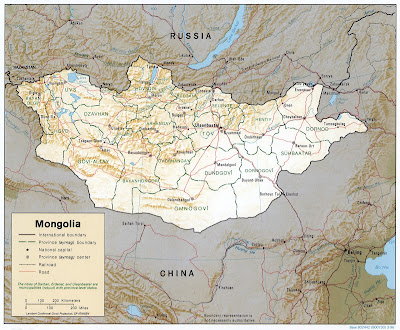The pope has undoubtedly natural reserves of energy, notwithstanding the knee problems, the sciatica, and other internal problems. But grace builds on nature, and the animating force that has driven Francis into one of the world’s great deserts is an evangelical love for the people of Mongolia.
There are only a few thousand Christians among three-and-a-half million Mongolians, many of whom still lead nomadic lives but also carry the memory of their forebears who built an immense empire throughout China and Central Asia in the 13th century. It was a starkly ambivalent empire, bringing total destruction upon those who resisted its conquering armies, but also a measure of peace and civil and religious tolerance to places that that submitted and became tributaries.
While it flourished, the Mongolian empire made relatively safe the vast East-West overland trade route, a long and perilous way held together by an archipelago of oases. For a time in the Western Middle Ages, a “line” of communication and exchange was opened that stretched from Venice to Beijing.
This memory, however, was not the purpose of Francis’s visit. Today Mongolia is a scantily populated “periphery” of the global landscape. Its people are easily ignored. But they are people, human persons, each one of them loved by God and redeemed by Jesus Christ. This is enough for the Holy Spirit, whose inspiration Francis is committed to discerning and following.
It also happens to be the case that Mongolia today shares a border of some 2000 miles with the north of the Peoples Republic of China. The significance of this border in the playing-out of events in the 21st century and beyond is impossible to determine today. But when Pope Francis walked through the Mongolian capital of Ulaanbaatar he came closer than any of his predecessors to the soil of the historically great, currently enigmatic “world” that is China.
China is also much loved by God, and destined to play a pivotal role in the emerging epoch. Like his confrere Saint Francis Xavier, Pope Francis reached the threshold of China. He “knocked” on the doors of its metaphorical “Great Wall” (not far from the remains of the actual Wall on classical China’s northern frontier). May the Lord grant that others will follow, building bridges of communication and understanding, opening up the paths of the Holy Spirit, the way of evangelization. We hope that the next encounter between East and West will be marked by an enrichment of the fullness of Catholicity, rather than by an explosion of another cataclysmic war.

